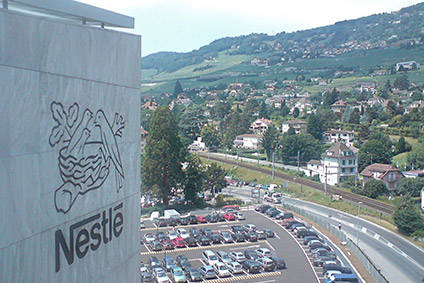
Nestlé has set out a range of investment projects in China, from spending on organic grain and boosting dairy farming to launching “adult functional food” products.
The Swiss giant is ploughing CNY400m (US$58.5m) into initiatives that will “improve the sustainability of the agricultural sector”, as well as boost its production capacity in the province of Heilongjiang.

Discover B2B Marketing That Performs
Combine business intelligence and editorial excellence to reach engaged professionals across 36 leading media platforms.
Nestlé is setting up a centre to promote the development of grain cultivation in China’s northernmost province, initially focus on organic versions of the crop.
In Shuangcheng, a district outside Harbin, Heilongjiang’s capital, will expand its “dairy farming institute”, with a larger cow herd and therefore fresh-milk production. Nestlé said the investment would help grow its production of infant formula in China.
Meanwhile, over the next five years, Nestlé will look to expand its factory in Shuangcheng, where it makes products including dairy foods, breakfast cereal, infant formula and baby food.
Nestlé plans to increase the production capacity for Gerber infant cereals at the plant by more than 50%.

US Tariffs are shifting - will you react or anticipate?
Don’t let policy changes catch you off guard. Stay proactive with real-time data and expert analysis.
By GlobalDataThe company is also set to launch two more product categories, including infant cereal-based snacks and adult functional foods.
Nestlé started manufacturing the Gerber Nutripuffs infant snacks at the Shuangcheng site earlier this year but a spokesperson said the new snacks were different, without providing further details.
The “adult functional foods” centre on milk powder and protein powder, the spokesperson added. Manufacturing will start later this year. It will be the first time Nestlé has produced this type of product – which the company says has been “clinically proven to increase bone density” – in China.
In July, Danone set out a series of investments in China, with the French giant’s infant-formula and medical-nutrition businesses getting funds for expansion.
China is Nestlé’s second-largest market by sales. Nestlé’s sales in Greater China were CHF6.91bn (US$7.6bn) in 2019, according to the company’s annual report.
In May, Nestlé outlined an investment package worth CHF100m to made in the Tianjin Economic-Technological Development Area (TEDA), also in the north of the country.
As part of the programme, Nestlé will build its first production facility in Asia for plant-based products.





